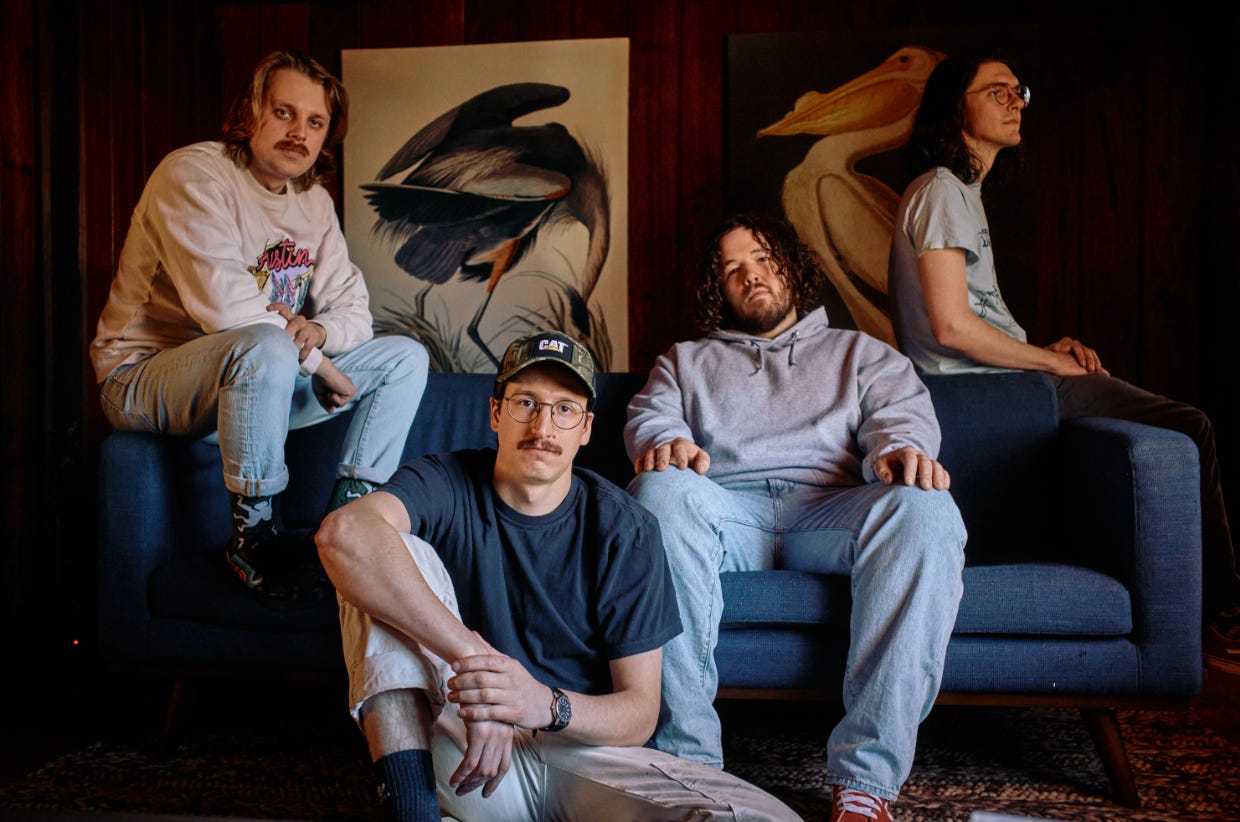CR 067: Indie Band Whitehall on Songwriting, Side Hustles, and the Upside of Boredom
Whitehall frontman Paddy McKiernan and bass player Brennan Clark discuss the band’s new album, “National Finals Rodeo,” and their creative process.
Over the past decade, Brooklyn-based indie band Whitehall has amassed millions of streams across platforms, earned praise from Alternative Press and American Songwriter (among other outlets), and shared the stage with Goo Goo Dolls, Arlie, and Carver Commodore. Not bad for what frontman Paddy McKiernan says “started as a silly little college band.”
The foursome—McKiernan, guitarist Avery Greeson, bass player Brennan Clark, and drummer Davis Rowe—spent their first few years building a following in their hometown of Charleston, South Carolina before relocating to New York. Their latest album, National Finals Rodeo, is a catchy collection of melodic, guitar-heavy alt-rock songs that gives nod to ’90s-era Pavement and Modest Mouse.
And yet, despite their success, the band members point out they, like most creatives, can’t rely solely on their music to make ends meet. “It’s a funny industry because there’s so much value in it that doesn’t come from money, so …
Keep reading with a 7-day free trial
Subscribe to Creative Reverberations to keep reading this post and get 7 days of free access to the full post archives.



